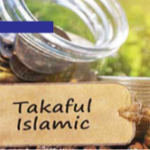
Morality and Education in Islam
By Sherrif Kaisi
It is indisputable fact that education is very important tool in human society. This is why we find in the contemporary world, every responsible person and/or parents do not ignore this important element of life. In fact Islam regards education and seeking of knowledge as part of a faith inclined concept (ibada)
Of course we cannot draw any thin line between age of a human being and education. Our prophet Muhammad peace be upon him was commanded by Allah to read (and to seek knowledge) when he was
40 years of age. He imparted such huge knowledge acquired from his creator and master (Allah) to his companions whom some of them were older than him.
On the same note, it is also a fact that on one occasion he encouraged his followers to educate their children while they are still at tender age. It is said that ‘a child is like a clean white paper, whatever can be scribbled on it will stick’ this depicts that he indeed encouraged parents to educate their children at the earliest age of their life because it is no hard for them to grasp what the teacher says to them.
There is abundance incidence in the world that young stars aged below 10 years memorized the whole noble Qur’an. This means children at this state are able to memorize whatever is taught to them faster
than an old person.
In today’s educational systems, there are many issues affecting the whole process of teaching and learning in various learning institutions. Very often we hear that students of certain school be it primary, secondary and even those who are supposed to be regarded as matured students in various higher learning institutions have behaved irresponsibly. Schools are being destroyed. We give an example of Mama Halima Girls Secondary school in Mulanje which was stoned and devastated it by its own daughters! Bilal Trust Darul Uloom which was destroyed by its own sons. The critical question is, why this is regularly happening in many boarding schools and learning institutions?
It has been argued that to a certain extent all such incidences happen due to lack of moral values on the side of students who indulge into such malpractices.
Ethical education states that ‘the set of ethical principles and moral values that have to be inculcated in the child even before it starts the journey of seeking education in order to be acquired by him as customary behavior from his early years of life, through the time he becomes legally capable up to his full adulthood.’
Evidently these ethical principles and moral values are the sole product of deep belief and righteous upbringing of a child by the responsible parents and guardians. So it is crystal clear that when a child is brought up from his tender age upon belief in his creator, he will develop an innate faculty for acceptance and pursuit of moral standards and values and responsible behavior.
Equally, if the child is brought up in an atmosphere alien to Muslim tenets, void of all religious orientations, the result is obvious that such a child becomes prone to dissolution and immorality. Consequently, no wonder that Islamic teachings have given a special priority to the moral education of
children.
The question is who is responsible for children’s moral education? It is straight forward that from the onset; parents and guardians are on position one to morally educate their children at their respective
homes.
To this regard, the prophet peace be upon him said ‘No gift has given by a farther to his children is more valuable than good breeding’
This means that it in an obligation to parents to morally educate their offspring. In fact, if a child is not educated at home by his own parents it becomes so difficult for such child to learn morality from other people such as teachers.
Unfortunately it is very sad to state here that many parents and guardians don’t take this responsibility seriously. Instances are happening in areas where you find a child is left by the parents to abuse and use irresponsible language to his friends. Fighting is very common among the children at schools.
Second on this set is the teacher at school. Here it is meant both teacher in an Islamic school/Madressah and a teacher in western school corridors. Both have a vital responsibility to inculcate good values in to their students. However, what is sad is that today’s students do not respect their teachers.
In fact with the wrong understanding of human rights, students turn to look at their teachers as mere people who can only impart class knowledge and not moral and values into their brain faculties. Instances are common place in learning institutions that some students even fight with their teachers. Let alone braking down and destroying the school premises and even stealing is just too rampant.
The exegesis of all this is directly attributed to lack of ethical education on the side of our children. In this era of democracy students perceive everything they do as the right thing. They feel like they are exercising their human rights. A very worrisome note is that there are some parents and guardians who
back their children when they are reported that they have misbehaved at school.
In conclusion, let me call upon all parents and guardians to be very serious in educating our children to grow with ethical values. After all, what type of society we are creating for tomorrow if we don’t ethically educate our children? If the world is facing uncountable atrocities in all aspect of life, it goes back to how these people were trained morally by their parents and guardians. Someone who is trained to refrain from corruption, theft and many more irresponsible behaviors cannot become a monster today who doesn’t care about others.
This is why it is said in Malawian adage “Mmera mpoyamba” yes it’s true that when a child is ethically upright from the tender age of his life, it becomes so hard for him to just change that when he grows up. Let us be responsible parents to create better and good society wealthy leaving by all.
I will not do justice if I pen off without advising the government to introduce subjects and courses at all levels of learning which deal with ethics. This shall help to create the generation of young educated Malawians who will understand who they are and why they are entrusted to serve others by their creator Allah. Missing this fact, then we should expect nothing more but more DOOM!
































